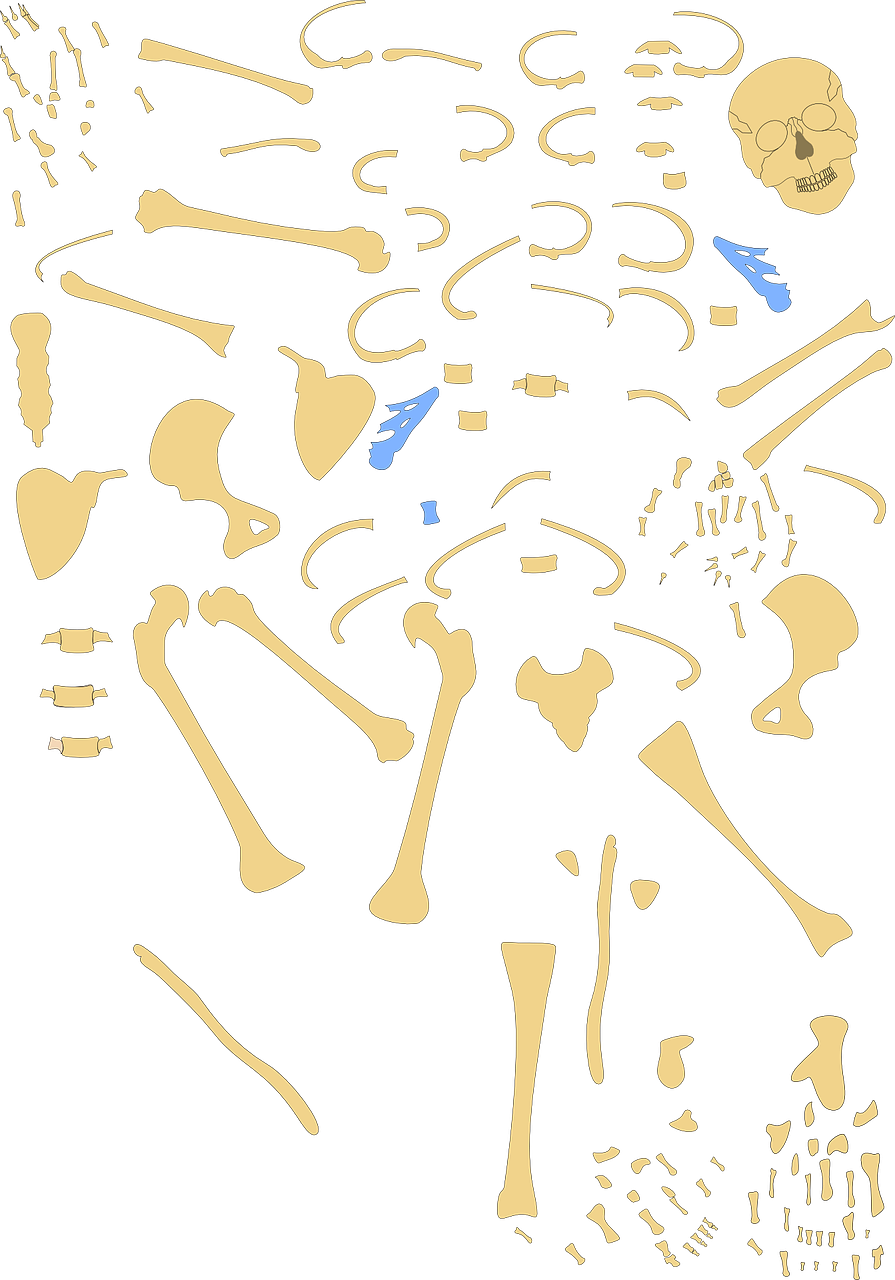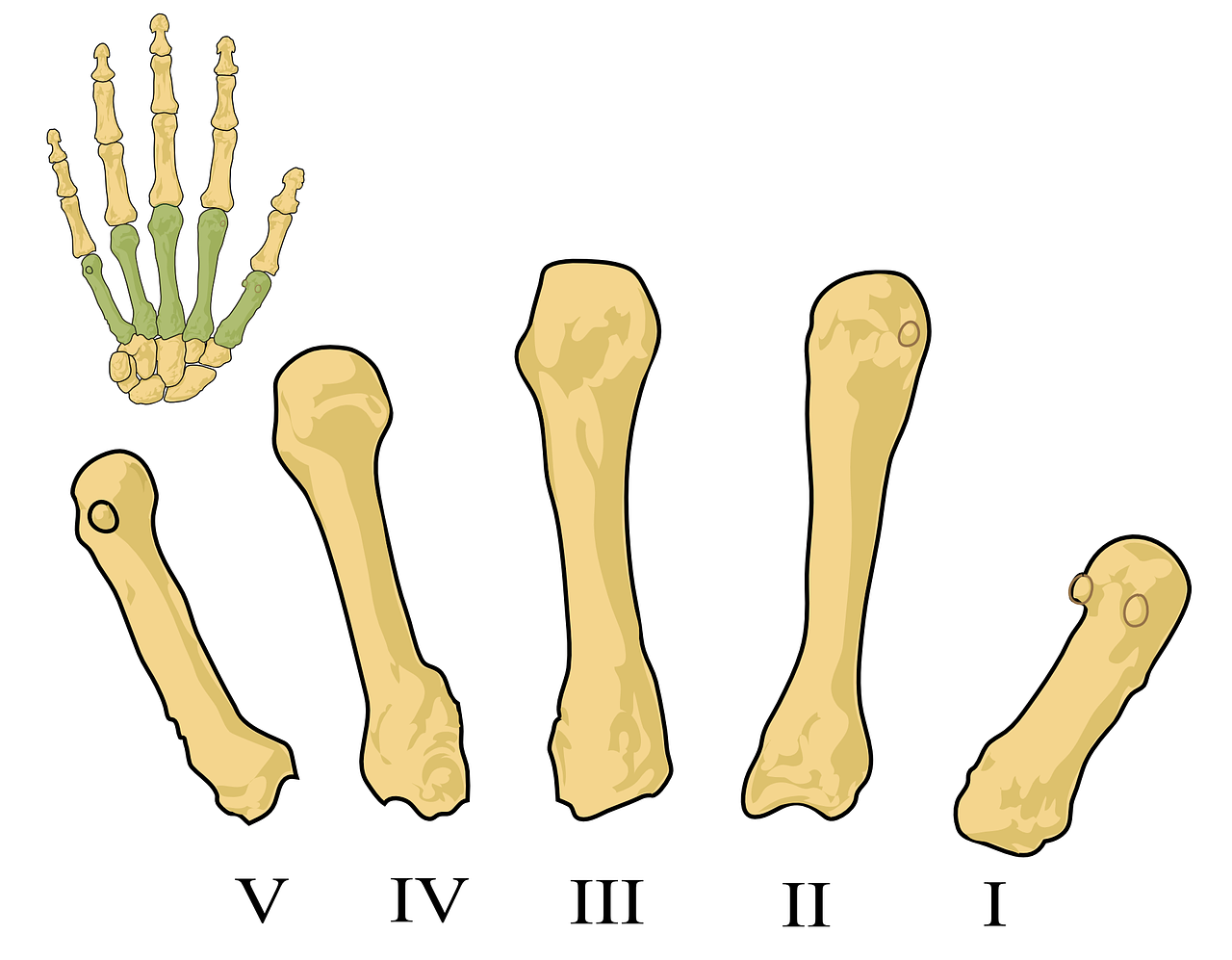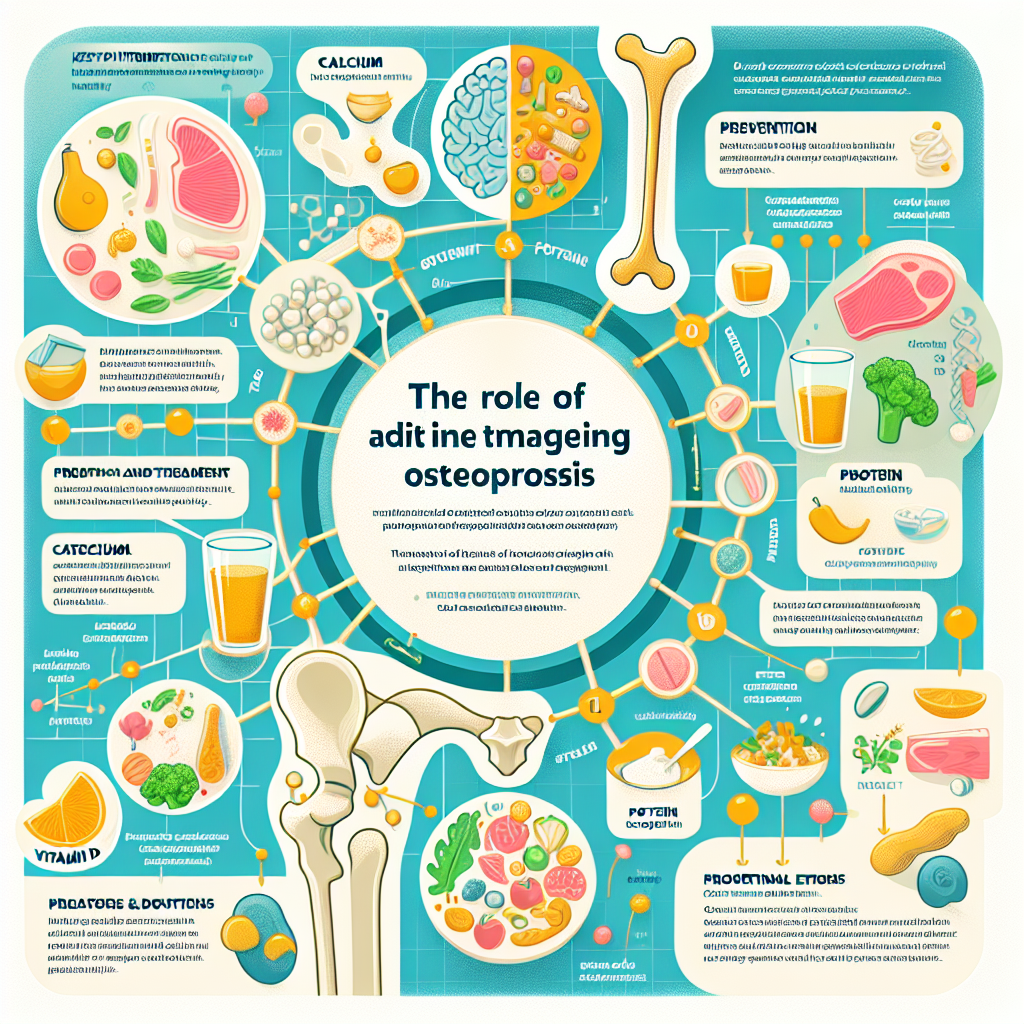Are you curious about the role of diet and nutrition in the development and management of osteoporosis? Understanding how what you eat can affect your bone health is crucial in preventing and managing this condition. In our article, we’ll explore the impact of diet and nutrition on osteoporosis and provide insights into the foods and nutrients that can help promote strong and healthy bones. So, let’s uncover the potential connection between what’s on your plate and the strength of your bones!
Risk factors for osteoporosis
Age
Age is one of the most significant risk factors for osteoporosis. As you get older, your bone density naturally decreases, making you more susceptible to fractures and osteoporosis. After the age of 50, women are at a higher risk of developing the condition. Men, on the other hand, tend to experience a gradual decline in bone density starting around the age of 65. It is important to focus on maintaining a healthy diet and lifestyle as you age to minimize the impact of age-related bone loss.
Gender
Gender plays a role in the development of osteoporosis as well. Women are more prone to this condition due to hormonal changes that occur during menopause. Estrogen, a hormone that helps maintain bone density, decreases significantly during menopause, leading to accelerated bone loss. Men, although at a lower risk, can also develop osteoporosis due to age-related hormonal changes or certain medical conditions. It is essential for both genders to prioritize their bone health through proper nutrition.
Family history
Having a family history of osteoporosis increases your chances of developing the condition. Genetics can play a significant role in determining bone density and susceptibility to fractures. If your parents or siblings have been diagnosed with osteoporosis, you should be aware of the increased risk and take proactive steps to prevent or manage the condition. While you cannot change your genetics, a healthy diet and lifestyle can still have a positive impact in maintaining optimal bone health.
Role of diet in bone health
Calcium intake
Calcium is a vital nutrient for the health of your bones. It is the main mineral found in bones and teeth, providing strength and structure. Insufficient calcium intake can lead to weakened bones and an increased risk of fractures. It is recommended that adults aged 19-50 consume 1000 mg of calcium per day, while those over 50 should aim for 1200 mg. Dairy products such as milk, cheese, and yogurt are excellent sources of calcium. If you are lactose intolerant or follow a vegan diet, alternative sources of calcium include leafy green vegetables, tofu, and fortified plant-based milk.
Vitamin D intake
Vitamin D plays a crucial role in calcium absorption and bone health. It helps the body absorb and utilize calcium for the growth and maintenance of strong bones. Sunlight is a natural source of vitamin D, but it can also be obtained through certain foods such as fatty fish (salmon, mackerel), egg yolks, and fortified dairy products. The recommended daily intake of vitamin D for adults is 600-800 IU (International Units). However, it can be challenging to obtain adequate amounts from diet alone, especially for those who live in regions with limited sunlight. In such cases, supplementation may be necessary.
Protein intake
Protein is crucial for building and repairing body tissues, including bones. It plays a vital role in bone health as it provides the necessary amino acids for bone formation and enhances calcium absorption. Inadequate protein intake can lead to reduced bone density and increased risk of fractures. Include lean sources of protein in your diet such as chicken, turkey, fish, tofu, beans, and legumes. Aim for a balanced intake of protein throughout the day, as spreading it out across meals can optimize its effectiveness in supporting bone health.

Effects of an imbalanced diet on bone health
High sodium intake
Excessive sodium intake can have negative effects on your bone health. High sodium levels in the body can cause increased calcium excretion through urine, resulting in reduced calcium availability for bone maintenance. This imbalance can weaken bones and increase the risk of osteoporosis. To curb sodium intake, limit the consumption of processed and packaged foods, as they often contain high levels of sodium. Opt for fresh, whole foods, and use herbs and spices to season your meals instead of relying on excessive salt.
Excessive caffeine consumption
While moderate caffeine consumption is generally safe, excessive intake can adversely affect bone health. Caffeine can interfere with calcium absorption and increase calcium excretion through urine. It is important to note that the negative effects of caffeine on bone health are most prominent in individuals with low calcium intake. To minimize the impact, ensure you consume enough calcium-rich foods and drinks throughout the day, and limit your caffeine intake to moderate levels.
Alcohol consumption
Excessive alcohol consumption can have detrimental effects on bone health. Alcohol interferes with the body’s ability to absorb calcium, leading to reduced bone density and increased risk of fractures. Alcohol can also impair the production of vitamin D in the liver, further exacerbating the negative impact on bone health. If you choose to consume alcohol, it is recommended to do so in moderation. Limit your intake to no more than one drink per day for women and two drinks per day for men.
Impact of micronutrients on bone health
Magnesium
Magnesium is essential for bone health, as it is involved in the conversion of vitamin D into its active form and plays a role in calcium metabolism. It also helps regulate bone-building cells and prevents excessive bone breakdown. Good dietary sources of magnesium include whole grains, nuts, seeds, legumes, dark leafy greens, and seafood. Adults should aim for a daily intake of 320-420 mg of magnesium.
Phosphorus
Phosphorus works in conjunction with calcium to maintain and build strong bones. It is crucial for the formation of hydroxyapatite, which is the mineral component responsible for bone strength. Good sources of phosphorus include dairy products, meat, poultry, fish, legumes, nuts, and whole grains. The recommended daily intake of phosphorus for adults is 700-1000 mg.
Vitamin K
Vitamin K plays a vital role in bone health by assisting in the activation of osteocalcin, a protein involved in bone mineralization. It regulates calcium deposition and prevents calcium from accumulating in the arteries instead of the bones. Leafy green vegetables, such as spinach and kale, are excellent sources of vitamin K. The recommended daily intake of vitamin K for adults is approximately 90-120 mcg for women and 120-150 mcg for men.

Role of antioxidants in bone health
Vitamin C
Vitamin C is an antioxidant that plays a crucial role in collagen synthesis, a protein that provides structure to bones, tendons, and ligaments. It also promotes the absorption of calcium into bones and helps protect against bone loss. Excellent sources of vitamin C include citrus fruits, berries, kiwi, bell peppers, and leafy greens. Aim for a daily intake of 75-90 mg for women and 90-120 mg for men.
Vitamin E
Vitamin E is another antioxidant that contributes to bone health. It helps protect against oxidative damage, which can accelerate bone loss. Nuts and seeds, vegetable oils, spinach, and broccoli are good sources of vitamin E. The recommended daily intake of vitamin E for adults is 15 mg.
Selenium
Selenium is an essential mineral that acts as an antioxidant and aids in bone health. It helps regulate bone metabolism, protects against oxidative stress, and supports overall bone formation. Selenium-rich foods include Brazil nuts, seafood, meat, poultry, and dairy products. The recommended daily intake of selenium for adults is 55 mcg.
Influence of diet on bone turnover
Effect on bone formation
A healthy diet plays a crucial role in promoting bone formation. Nutrients like calcium, protein, and vitamins D, C, and K are vital for the production of new bone tissue. These nutrients provide the building blocks necessary for bone mineralization and the development of a strong skeletal structure. Ensuring an adequate intake of these nutrients through a balanced diet can support the ongoing process of bone formation.
Effect on bone resorption
Certain dietary factors can influence bone resorption, the process of breaking down old bone tissue. High sodium and caffeine consumption, as well as excessive alcohol intake, can increase bone resorption, leading to a decline in bone density. Consuming a diet that is low in these substances and rich in bone-building nutrients can help minimize bone resorption and maintain healthy bone mass.

Importance of weight management
Obesity and bone health
Obesity can have negative effects on bone health. Excess body weight puts additional strain on the bones and joints, increasing the risk of fractures and bone-related complications. Additionally, obesity can lead to chronic inflammation, which can further contribute to bone loss. Maintaining a healthy weight through a balanced diet and regular exercise is crucial for optimal bone health.
Underweight and bone health
Being underweight can also have detrimental effects on bone health. Insufficient body weight often means inadequate nutrient intake, including essential nutrients for bone formation such as calcium, protein, and vitamins. This can result in reduced bone density and increased risk of fractures. If you are underweight, it is important to focus on consuming a nutrient-dense diet to support bone health and achieve a healthy weight.
The potential of dietary supplements
Calcium supplements
Calcium supplements can be beneficial for individuals who struggle to meet their daily calcium requirements through diet alone. They can help ensure adequate calcium intake, especially for those with lactose intolerance or following a vegan diet. However, it is important to note that it is generally recommended to obtain nutrients from food sources whenever possible. Consult with a healthcare professional before starting any dietary supplements to determine your specific needs.
Vitamin D supplements
Vitamin D supplements may be necessary for individuals who have limited sun exposure or have difficulty obtaining enough vitamin D through their diet. Since vitamin D is crucial for calcium absorption and bone health, supplementing can help prevent deficiencies and support optimal bone health. Speak with a healthcare professional to determine the appropriate dosage and duration for your specific needs.
Omega-3 fatty acids
Omega-3 fatty acids, found in fatty fish such as salmon and mackerel, have anti-inflammatory properties that can benefit bone health. They have been shown to help reduce bone loss and enhance bone density. If you do not consume enough fatty fish, omega-3 supplements can be considered as a complementary approach to support bone health. As with any supplements, consult with a healthcare professional before starting to ensure they are suitable for you.

Nutritional guidelines for osteoporosis prevention and management
Recommended daily intake of calcium and vitamin D
To support bone health, it is recommended that adults aged 19-50 consume 1000 mg of calcium per day, while those over 50 should aim for 1200 mg. The recommended daily intake of vitamin D ranges from 600-800 IU for most adults. However, individual requirements may vary, so it is best to consult with a healthcare professional to determine the optimal calcium and vitamin D intake for your specific needs.
Balancing a healthy diet
Maintaining a balanced diet is essential for optimal bone health. Focus on incorporating a variety of nutrient-dense foods such as fruits, vegetables, whole grains, lean proteins, and healthy fats into your daily meals. Aim to meet your recommended daily intake of calcium, vitamin D, magnesium, phosphorus, and other essential nutrients through whole food sources as much as possible. Limit the consumption of sodium, caffeine, and alcohol, as excessive intake of these can negatively affect bone health.
Importance of regular exercise
Alongside a healthy diet, regular exercise is crucial for maintaining strong bones. Weight-bearing exercises such as walking, jogging, dancing, and strength training help stimulate bone growth and maintain bone density. Incorporate at least 150 minutes of moderate-intensity aerobic activity or 75 minutes of vigorous-intensity aerobic activity into your weekly routine, along with muscle-strengthening activities at least twice a week.
Conclusion
Diet and nutrition play a significant role in the development and management of osteoporosis. Age, gender, and family history are important risk factors to consider, but the impact of these factors can be minimized through proper nutrition. Adequate intake of calcium, vitamin D, protein, and other essential nutrients, alongside maintaining a balanced diet, can support bone health and reduce the risk of developing osteoporosis. Avoiding excessive sodium, caffeine, and alcohol consumption is also essential. In addition, weight management and regular exercise are crucial for maintaining optimal bone health. If necessary, dietary supplements can be considered, but it is always best to consult with a healthcare professional to determine the specific requirements for your individual needs. By prioritizing your bone health through a healthy lifestyle, you can reduce the risk of osteoporosis and enjoy a life with strong and healthy bones.


